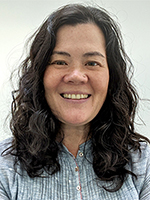
Greater community engagement needed with non-English language preference individuals who are often excluded from studies in Canada.
Immigrants make up around 29 per cent of the population in British Columbia, yet the health care system and health research has largely been designed without the input of immigrant community members. Dr. Mei-ling Wiedmeyer, a Vancouver Coastal Health Research Institute researcher, and the IRIS (Evaluating Inequities in Refugee & Immigrants’ Health Access) team have developed a novel methodological approach and toolkit to encourage greater participation of immigrant and migrant voices in health research and health services.
“Studies often lump im/migrant communities together, yet they are diverse groups of people with unique experiences and structural factors that impact their access to health care, as well as their health status,” states Wiedmeyer.
“Our paper outlines the core structure of our community engagement project, which includes commitments to engage with im/migrant community members through collaborative project development.”
The research team uses the term im/migrants to refer to individuals in Canada with and without permanent resident or citizenship status, including people with temporary visas and those without immigration status. Recent population data from BCStats indicates that B.C. welcomed 189,044 international migrants between October 1, 2022 and October 1, 2023, with a record-setting 133,747 non-permanent residents arriving in B.C. during this period.

Inclusion of im/migrant voices to boost health research accuracy and impact
The IRIS team’s methodology paper, published in BMJ Open, incorporates lessons learned from the longitudinal, community-based mixed methods research project first launched in 2018. The ongoing IRIS project studies im/migrants’ access to health services in B.C. through analysis of administrative data and interviews with community partners and participants from various im/migrant communities, with core research activities supported in English, Farsi/Dari, Spanish and Tigrinya.
The team developed a reproducible approach to engaging with im/migrant communities in health research that can be tailored to different community settings. An accessible, visual representation of the research team’s commitments to engage with im/migrant community members, as well as the values and actions that inform that approach, are outlined as posters/infographics in the paper.

Key takeaways from their research included a commitment to identify or develop approaches to enable researchers to partner with im/migrant community members and listen to and learn from their perspectives and experiences. Research teams are also encouraged to review research findings with affected communities using a range of formats designed to be easy to understand and accessible.
“It makes sense to directly involve im/migrant community members in health research, as this ensures the design, analysis, and conclusions are accurate and relevant.”
Im/migrant communities currently face structural barriers related to income, education and employment. These structural factors are correlated to health, with the lower income levels experienced by many people who immigrate to Canada placing them at greater risk of lower overall health. Social hierarchies also reinforce structural determinants of health, such as colonialism, racism and immigration policies, notes Wiedmeyer.
Wiedmeyer and the IRIS team are currently completing multiple analyses as part of the IRIS project to better understand the needs of im/migrant communities and inform health care research best practices on including im/migrant voices and experiences.
“Conducting research alongside communities who are affected by the research makes it more ethical and accurate.”
“Research that is led by im/migrant voices is more connected to the reality of the people accessing health services in B.C.,” notes Wiedmeyer. “Health care recommendations that flow from investigations that are accountable to im/migrant communities are also better positioned to arrive at practical and useful solutions to meaningfully impact the health of many diverse communities.”
“Health care is a human right,” Wiedmeyer adds. “As health researchers interested in improving health for all people, we have to ensure that our work is accountable to the people who are affected by it.”


